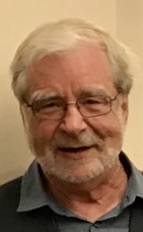Education for White People
- Marvin T. Brown

- Jun 9, 2020
- 2 min read
Updated: Mar 30, 2023

To engage in the work of creating a climate of justice based on the repair of social relations and mutual recognition, we need to overcome a major obstacle: white supremacy and arrogance. It would be a mistake to put all white persons in the same box, but we need to acknowledge that the box (a white privileged social world) exists. White persons may not be able to get out of the box, but they can become aware of it. Such awareness includes not only a critical analysis of the white social world’s patterns and on-going conversations, but also critical reflection of how this social world has shaped one’s beliefs. Learning about this white social world as a white person is an educational process that includes the following steps:
1. Distinguish between personal and social stories
2. Explore the sources of white arrogance
3. Talk about how you have benefited from racism
4. Get in touch with your vulnerabilities
5. Listen to how others see you
6. Compose stories that include all Americans
7. Participate in the creation of a climate of justice
Because of the strong individualism of American culture, it’s easy for persons to take any criticism of white racism as a criticism of them. In fact, the libertarian strain of the white social world prevents one from seeing that libertarianism itself is a social phenomenon.
Once we grasp the difference between social and personal stories, we can begin to examine the sources of white arrogance, which as Robin DiAngelo has somewhat paradoxically exposed as “white fragility.” White arrogance, in other words, is not based on strength, but on defending the hypocrisy of the white-only story. The white male social world, after all, exists in a climate of injustice caused by the enslavement and displacement of millions during the Atlantic commerce.
If you grew up as I did, this climate of injustice did not chill your body, but it does the bodies of others. We can know of this chill, however, if we are willing to listen. Listening to others allows us to take in different experiences of living in America, which broadens our framework for interpreting our history and ourselves. Whether I participate in this work with others depends on whether I am trustworthy enough to be invited, which depends, in the final analysis, on the work I have done in understanding myself.
With this broader and deeper personal and social understanding, we can listen and tell stories that reveal relationships that need repair and participate in changing our political culture from a climate of injustice to a climate of justice. A change that is necessary not only for our social relationships but also our relationship with the earth.

Comments